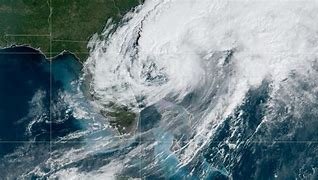The Mental Health Impact of Hurricane Milton: Navigating the Emotional Storm
The Mental Health Impact of Hurricane Milton: Navigating the Emotional Storm
Hurricanes are powerful natural disasters that can leave a trail of destruction in their wake. Beyond the physical damage, the emotional and psychological toll on individuals and communities can be profound. As we face the increasing frequency and intensity of these storms, it’s crucial to understand their impact on mental health and explore ways to cope and support one another.
The Emotional Aftermath
Experiencing a hurricane can trigger a range of emotions, from fear and anxiety to sadness and anger. The immediate threat to life and property, combined with the uncertainty and chaos, can be overwhelming. For many, the stress doesn’t end when the storm passes. The aftermath often brings additional challenges, such as displacement, loss of belongings, and the daunting task of rebuilding.
Common Mental Health Challenges
Anxiety and Stress: The anticipation of a hurricane and the experience itself can lead to heightened anxiety and stress. This can manifest as difficulty sleeping, irritability, and constant worry about future storms1.
Depression: The loss of homes, possessions, and even loved ones can lead to feelings of hopelessness and depression. The long recovery process can exacerbate these feelings, especially if support and resources are limited2.
Post-Traumatic Stress Disorder (PTSD): For some, the trauma of surviving a hurricane can result in PTSD. Symptoms may include flashbacks, nightmares, and severe anxiety that interfere with daily life2.
Survivor’s Guilt: Those who come through the storm relatively unscathed may experience guilt, especially if friends, neighbors, or community members suffered significant losses3.
Coping Strategies
Seek Professional Help: Don’t hesitate to reach out to mental health professionals. Therapy can provide a safe space to process emotions and develop coping strategies.
Connect with Others: Social support is vital. Sharing experiences with friends, family, or support groups can alleviate feelings of isolation and provide comfort.
Practice Self-Care: Engage in activities that promote relaxation and well-being, such as exercise, meditation, and hobbies. Taking care of your physical health can also boost your mental resilience.
Stay Informed, but Limit Exposure: While it’s important to stay updated on weather conditions, constant exposure to news and social media can increase anxiety. Find a balance that keeps you informed without overwhelming you.
Prepare for the Future: Having a plan in place for future hurricanes can reduce anxiety. This includes knowing evacuation routes, having emergency supplies ready, and staying informed about local resources.
Supporting Others
If you know someone affected by a hurricane, offering support can make a significant difference. Listen without judgment, offer practical help, and encourage them to seek professional support if needed. Sometimes, just being there can provide immense comfort.
Conclusion
Hurricanes are a stark reminder of nature’s power, but they also highlight the strength and resilience of the human spirit. By understanding the mental health impact of these storms and taking proactive steps to support ourselves and others, we can navigate the emotional aftermath and emerge stronger.
Feel free to share your thoughts or any personal experiences related to hurricanes and mental health. Your insights could help others who are going through similar challenges.

